Three antisemitic films were released by Germany in 1940, a banner year for Adolf Hitler’s regime. Poland had been conquered, spelling finis to its independence and its venerable Jewish community. France, Belgium, Holland and Luxembourg would surrender to the German army. Only Britain would successfully resist the Nazi onslaught.
At a moment when the Nazi juggernaut seemed invincible, the German film industry released these infamous movies, whose sole purpose was to defame Jews and legitimize Germany’s barbaric campaign against them. All three were made under the supervision of the rabidly antisemitic minister of propaganda, Joseph Goebbels.
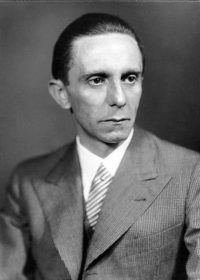
The movies in question, Jew Suss, The Eternal Jew and The Rothschilds, were viewed by millions of Germans. Having seen the first two, which were noxious and vile, I was curious about The Rothschilds, directed by Erich Waschneck.
The three central characters in The Rothschilds are Mayer Amschel Rothschild, the patriarch of this immensely wealthy Jewish family, and two of his sons, Nathan and James. It unfolds during the Napoleonic wars in the early 19th century, when France and Britain were bitter rivals in the scramble for domination of the European continent.
Mayer (Erich Ponto), living in Frankfurt’s ghetto, is approached by a gruff and domineering German nobleman who wants to invest a huge sum of money, 600,000 British pounds, in Britain. Mayer is portrayed as a courteous and accommodating person who pays deference to his boorish and powerful guest. In reality, he’s a first-class cad who thinks that fortunes can only be made at the expense of soldiers’ blood.
Mayer dispatches Nathan (Carl Kuhlmann) to London to arrange the details of the cash transfer. A distinctly shifty type, Nathan feeds into common stereotypes about Jews. Lord Wellington, the admiral of the British fleet, knows a scoundrel when he sees one, accusing Nathan of fraud. If a person of such moral character is suspicious of Nathan, imagine what he must be up to.
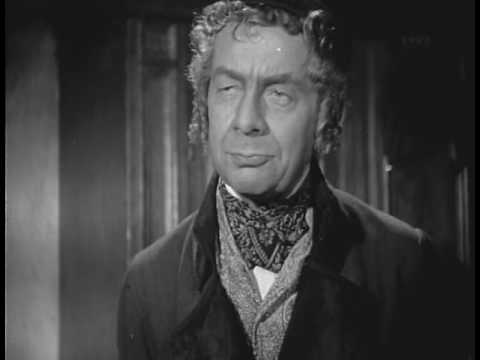
Lest a viewer misses the point of the film, screaming headlines appear occasionally. “The Jewish overtaking of England,” says a didactic one. “The Jewish International goes to work,” another one chimes in.
Nathan, despite his wealth, is shunned by his peers and members of British high society. His notoriety is such that not a single person shows up at his lavish banquet, leaving him to stew in indignation and embarrassment. Bronstein, his obsequious assistant, finally musters up the courage to tell him the bitter truth: he’s regarded as a Jew from the ghetto, the ultimate insult.
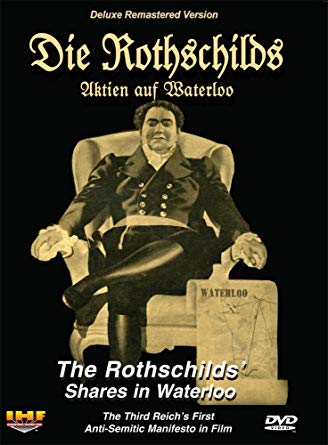
James (Albert Lippert) receives better treatment than Nathan in The Rothschilds, but even he comes off as an insidious speculator. A headline sums it all up: While nations bleed on battlefields, speculators like James and Nathan earn obscene profits.
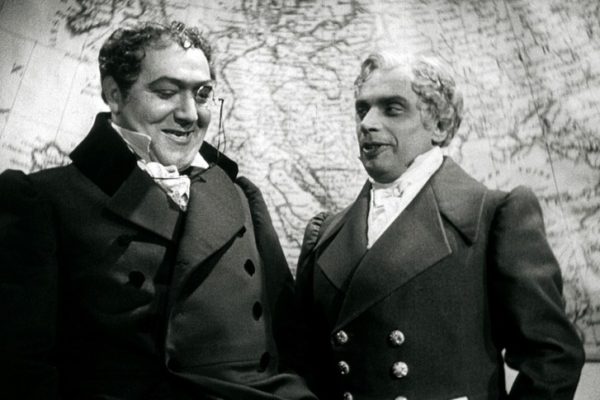
The film reaches its climax as the 1815 Battle of Waterloo rages. Nathan, having amassed a group of trained observers to send him back timely reports on military developments, disseminates false rumors that Napoleon has defeated Wellington. As stock prices in London plummet, investors sell off assets at bargain basement prices. Nathan buys them cheaply, enriching himself beyond his wildest dreams.
The movie ends as he and his associates draw a map of Europe that uncannily morphs into a crude Star of David.
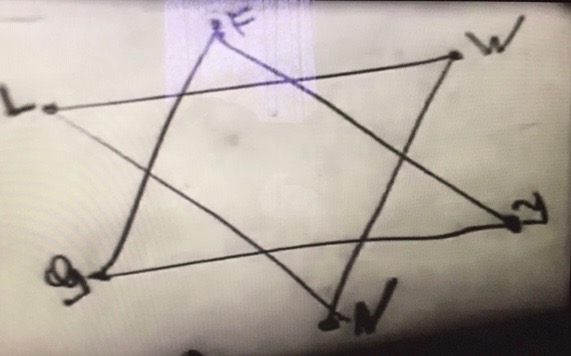
A final headline explains what lies ahead for a resurgent Germany: By the completion of this film, the Rothschilds had left Europe as refugees. But the struggle against their accomplices in Britain, the plutocrats, continues.
Compared to the viciousness of Jew Suss and The Eternal Jew, The Rothschilds is relatively restrained. But the message is identical — Europe will be a far better place if it is Judenrein, or ethnically cleansed of Jews.